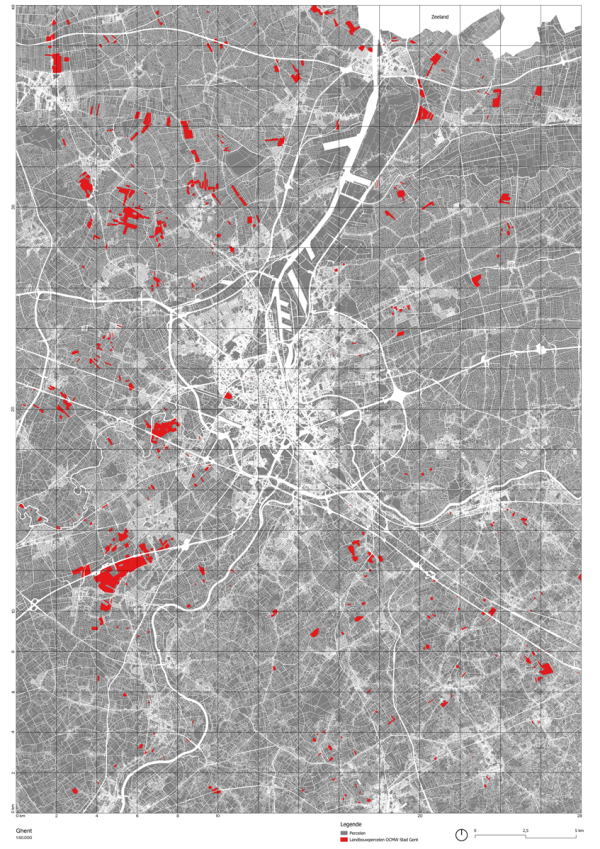Summerschool Agroecological urbanism – Future Heritage
08/07/2023 - 15/07/2023
Onderdeel van het traject Plaats voor landbouw in de stadsrandContext
The urban food policy of the City of Ghent, Gent en Garde, has been the subject of international attention including several prestigious prizes. At the same time, the systematic sale of public farmland in the peri urban fringe has placed the city in conflict with traditional and new farmers who are looking for land but are being outbidded. The city has placed a temporary stop on the sale of public farmland and is working towards a vision on farming in the region. The Intensive Programme will explore how public farmland may contribute to the agroecological transition of farming in the peri-urban fringe.
Within the context of De Stadsacademie civil society actors, farmers, urban civil servants, students, and researchers have been engaged in the development of alternative policies regarding publicly owned farmland, and agricultural heritage more in general. The land currently being sold by the city is the fruit of historical investment in urban agricultural heritage that has been handed down over several generations and is an integral part of the permanent improvements (infrastructure, public space, heritage landscapes, drainage systems, etc.) that made farming possible.
Contemporary urban constituencies care little for the future of this heritage. The selective treatment of the urban food question in the recent history of cities in Europe has led to a commonly held position that it is convenient (and cheaper) to produce food ‘elsewhere’ and that there is little reason to hold on to this historical land. Within the intensive program we will construct alternative positions that not only question the current sale of farmland but reserve a role for public land management in the construction of an agroecological urbanism, that is a way of urbanizing that actively supports the care for soils and the growing of food in an equitable en ecologically sustainable way. We will try to imagine new forms of urban infrastructure and future heritage that contribute to the local support of agroecological farmers and re-inscribe the farming activities within a new urban geography of farming.

